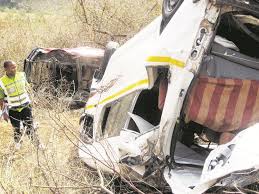
Faizel Patel – 26/08/2020
Justice Project South Africa (JPSA) says while the National Road Traffic Amendment Bill will send a clear message to motorists that they cannot drink and drive, not everything about the bill is good for motorists.
JPSA’s Howard Dembovsky was speaking to Radio Islam on Wednesday following parliament’s decision to amend transport regulations which will see motorists arrested if they drive a vehicle with even a drop of alcohol in their system
Transport minister Fikile Mbalula on Tuesday told reporters that the country’s drinking laws do not work, but that the banning of alcohol is not an option.
Mbalula addressed the media after three Tshwane metro police constables died while on duty when their vehicle collided with that of a suspected drunk driver.
Dembovsky says not everything about the National Road Traffic Amendment Bill is positive.
“Lowering or removing the alcohol does not remove the requirement to prove to a court that that person had a level alcohol in their blood stream. The police and other law enforcement authorities and the National Prosecuting Authority (NPA) are still going to have to prove that before a court.”
Dembovsky says there is very little enforcement around driving under the influence of alcohol, exacerbated by the fact that there are very few convictions.
He says the alcohol industry is unlikely to oppose parliament’s decision to amend transport regulations.
“I don’t think that the industry would fight with them. I think that the risk would come when people get convicted and they actually haven’t been drinking but they do have a level of alcohol in their bloodstream; because that can be caused by other factors other than drinking alcohol, they can be caused by medical conditions and so on.”
Dembovsky says the UK has one of the lowest road death statistics track record in the world, which stems from the enforcement of its traffic laws, something that South Africa desperately lacks.
Listen to the interview with Howard Dembovsky







0 Comments